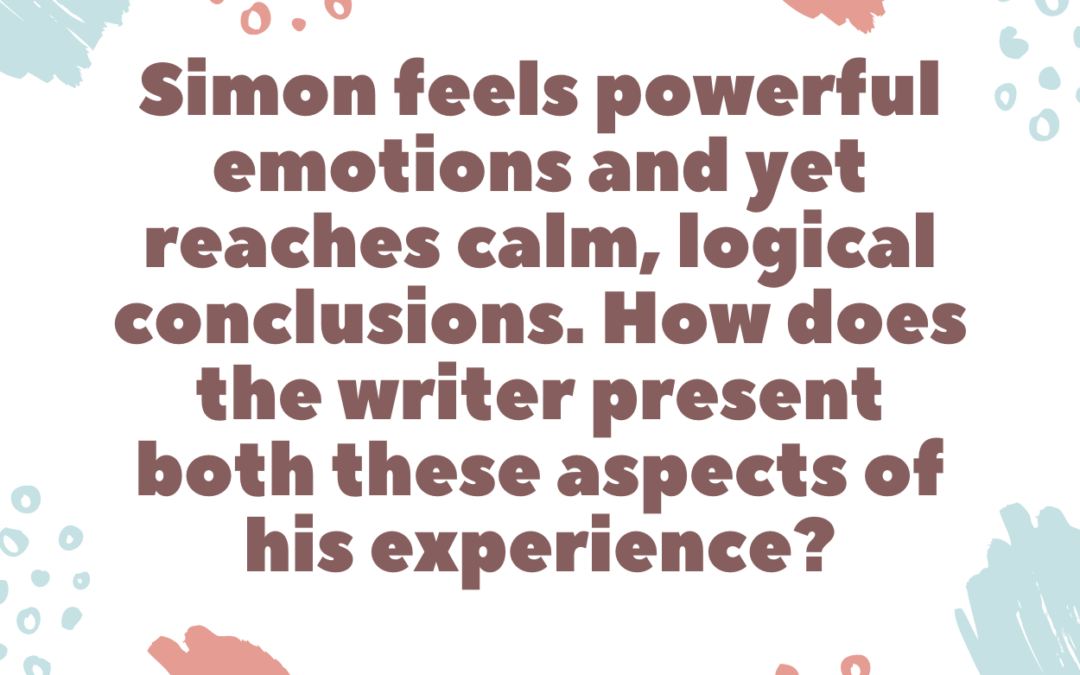Edexcel English IGCSE: Touching the void by Joe Simpson and Simon Yates
Q1. Simon feels powerful emotions and yet reaches calm, logical conclusions. How does the writer present both these aspects of his experience?
You should refer closely to the text to support your answer. You may use brief quotations.
Edexcel English IGCSE Model Essay by an Expert
In ‘Touching the Void’, Simon, the narrator, portrays his reaction to the disaster as one of clear-headedness, despite the intense emotion that must have accompanied the experience.
When the accident first occurs, Simon emphasises his logical reaction. Rather than reacting with panic, he is cautious, ready to take action if necessary. By using language showing that he is prepared for further disaster, such as “braced myself”, “half expecting” and “tensed up and ready”, Simon is portrayed as a logical character, who is able to remain calm in a disaster. Despite being unaware of the scale of the disaster, Simon must have been shocked and frightened at this point. However, there is no explicit description of his emotions. This notable absence of emotion suggests that Simon is focused on dealing with the disaster logically and clearly, without his judgement being clouded by fear.
Even after Joe explains that he has broken his leg, there is still an absence of emotion in Simon’s account. Simon’s unemotional reaction is emphasised here: his thoughts came “without any emotion”, everything was “totally rational” and he watches his friend “dispassionately”. This final word in particular highlights the detached and impassive nature of Simon’s experience, by emphasising that he was lacking in ‘passion’, which is what we might expect from such a traumatic event. He seems to lack emotional engagement with the situation. For example, he describes Joe as “pathetic”, which is an insult. This is a cruel way to describe his helpless friend, and shows that Simon is not thinking in a normal, compassionate way. The fact that Simon explicitly comments on his lack of emotion implies that this logical response was surprising to him.
A variety of language techniques are used to emphasise the logical lens through which Simon views this highly emotional experience. He uses short sentences which bluntly portray the facts that he assumes to be true – that Joe is going to die: “I think he knew it too. I could see it in his face.” The use of a triple structure in the sentence beginning “I knew where we were” shows the logical sequence of his thoughts, shocking the reader when the final part of this rational, unemotional sequence is that Joe “was dead”. In the final paragraph, the writer employs emphatically repetitive use of the personal pronoun. This perhaps hints at logical self-preservation; in such a dangerous situation, logical instincts are likely to kick in, eclipsing the compassion that we might otherwise expect from Simon.
In conclusion, Simon is clearly experiencing powerful emotions because of the dramatic experience. However, these emotions are largely outweighed at the time by logic and clear-headedness.



